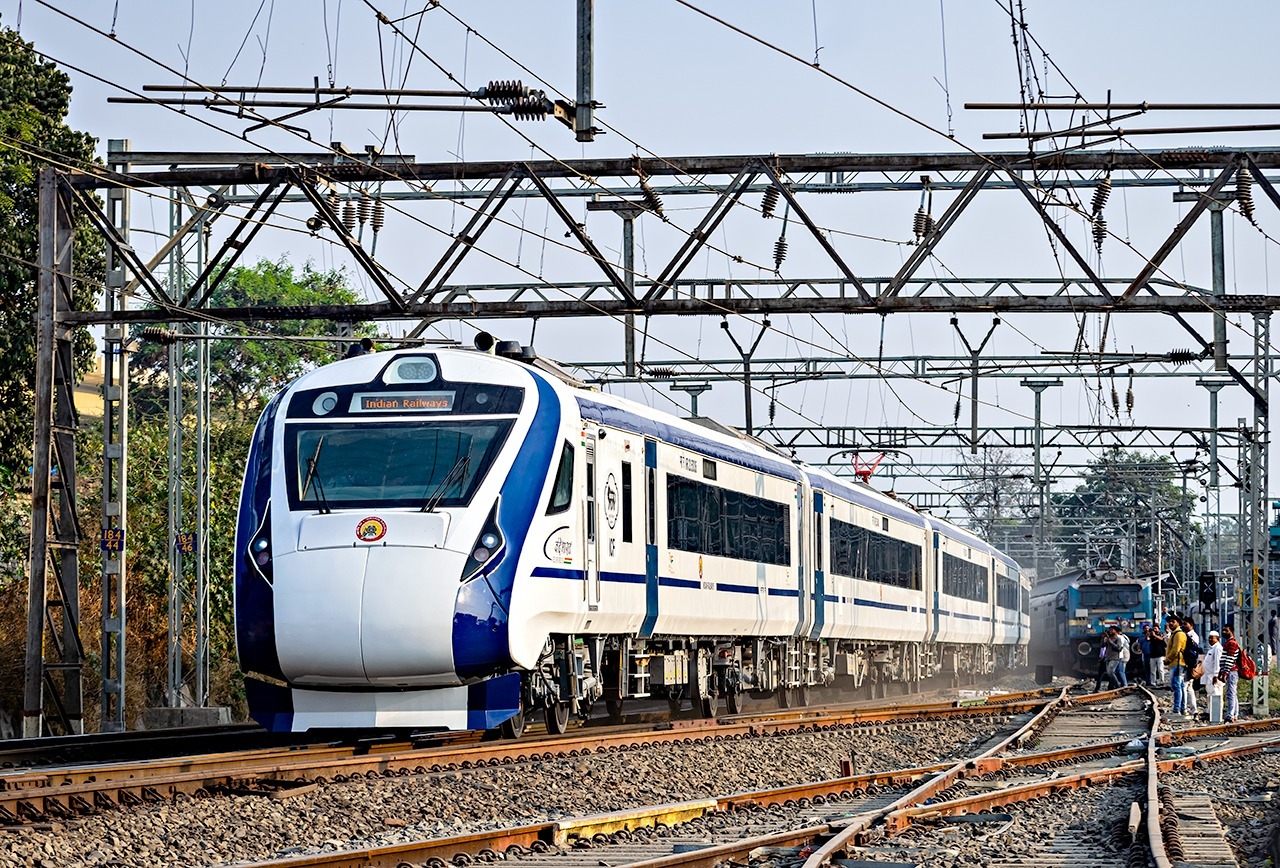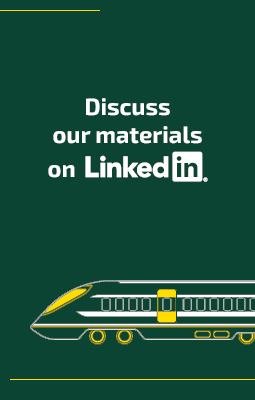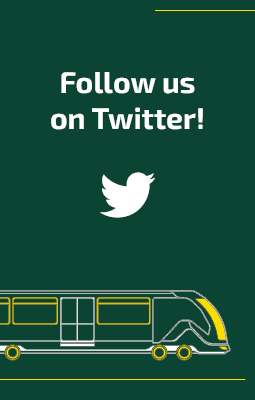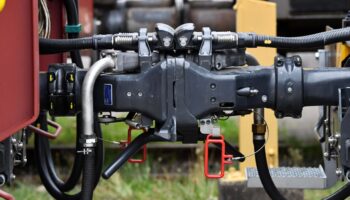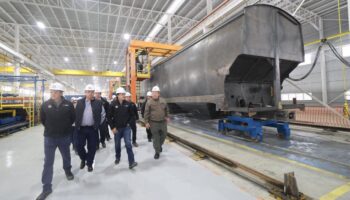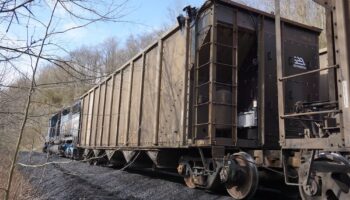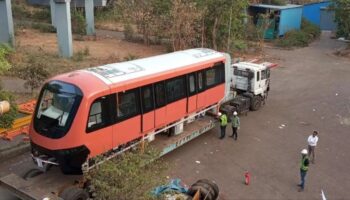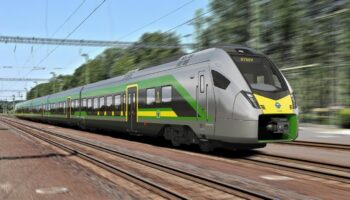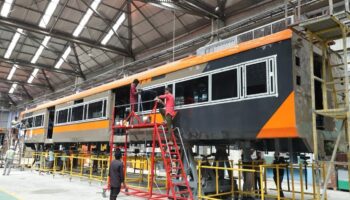India: This sum is allocated in the national budget for April 2023 – March 2024 while the whole budget line for the development of the railway sector totals INR 2.4 tln ($29.3 bln). The plans were unveiled by Minister of Finance Nirmala Sitharaman and Minister of Railways Ashwini Vaishnaw on 1 February.
The funds are also assigned for building and upgrading freight and passenger cars. 4,500 of new 62,000 freight cars will be autoracks. For the passenger service, manufacturers will supply 5,000 LHB passenger carriages, including 100 Vistadome coaches, and 35 hydrogen trains. The budget provides for the facelift of more than 1,000 passenger cars for Rajdhani Express, Shatabdi Express, Duronto Express, Humsafar Express, and Tejas Express.
No plans for the purchase of locomotives have been announced yet. In the fiscal year 2021–2022, more than 1,100 electric locomotives were manufactured.
One of the key projects requires expanding of the production of 16-car EMUs, Vande Bharat, domestically developed in India. The vehicles have been supplied since 2019, and the first Vande Bharat 2.0 was put into operation in September 2022. While eight trains are already in service, 75 new ones are expected to be commissioned by August 2023.
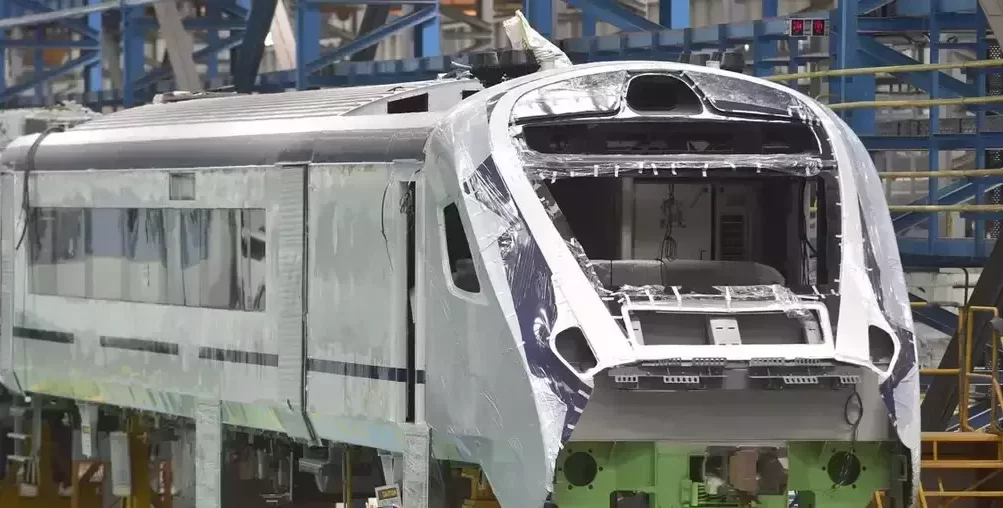 Production of the Vande Bharat EMU of second generation at the Integral Coach Factory. Source: indiatimes.com
Production of the Vande Bharat EMU of second generation at the Integral Coach Factory. Source: indiatimes.com
Now the Vande Bharat Express trains are manufactured only at the Integral Coach Factory (ICF) Chennai. Its manufacturer is a part of the national operator, Indian Railways (IR). In 2023, according to Vaishnaw, the production will be expanded to other IR’s plants: Latur, Sonipat, and Rae Bareli. By the next fiscal year, four plants are expected to assemble two to three trains a week. IR has already announced its intention to invest approximately $16.7 mln in the expansion of the ICF Chennai to increase its monthly output from four to six such trains.
The modernisation of the Chennai, Latur and Sonipat facilities will be ensured by two IR’s tenders for a total of 400 trains. Last year, IR invited bidders for the supply of 200 Vande Bharat trains of the third generation and their maintenance over 35 years. The manufacture is expected to be in Chennai and Latur. The shortlist of bidders included Alstom and four consortia with Indian companies: Transmashholding and Rail Vikas Nigam; Stadler and Medha; Siemens and BEML; Titagarh and BHEL. The second tender is for the production of 200 Vande Bharat trains of the fourth generation operating at 200 km/h at the Sonipat plant.
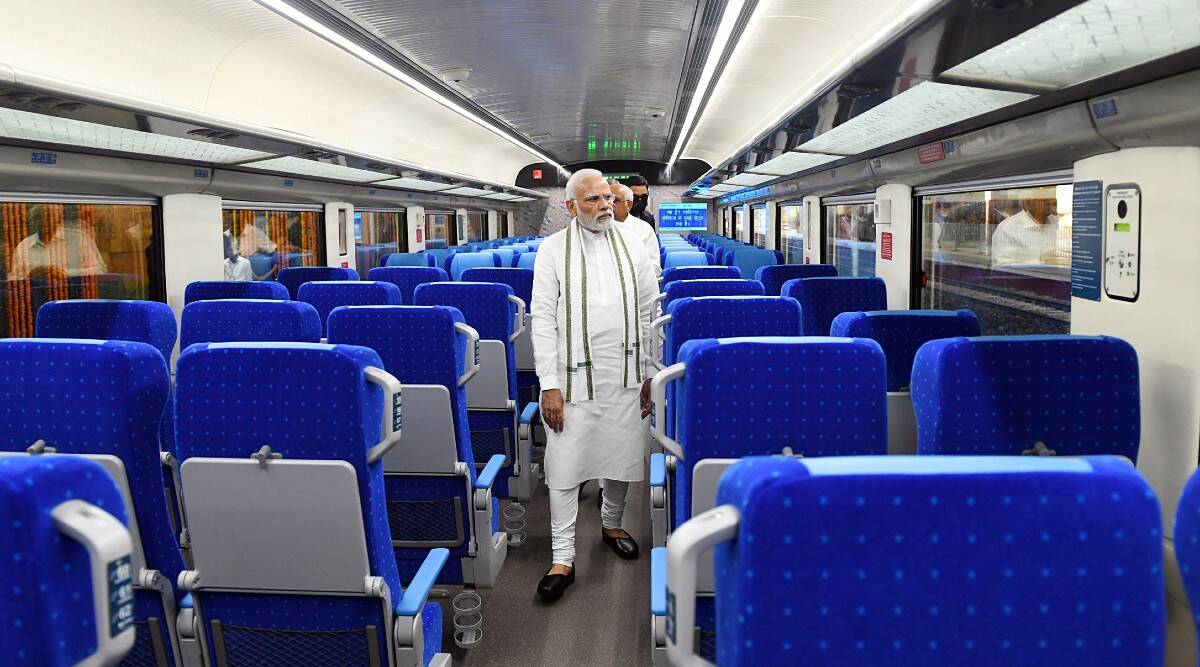 Prime Minister Narendra Modi examines the interior of the Vande Bharat 2.0 train. Source: indianexpress.com
Prime Minister Narendra Modi examines the interior of the Vande Bharat 2.0 train. Source: indianexpress.com
According to Ashwini Vaishnaw, two new train prototypes will be developed and manufactured by the end of the year. The first, Vande Metro, is a train of only eight coaches for short routes between small cities. In January, an order for the manufacture of a Vande Metro prototype was assigned to the ICF Chennai. As the number of coaches reduces, the task is to fit as many seats as possible without compromising the comfort of passengers. The production of Vande Metro is scheduled to begin in 2024–2025.
The second Vande Bharat will be a hydrogen train developed by Medha Servo Drives (MSD). This private company was awarded IR’s contract for the conversion of two DMUs to hydrogen for $8.8 mln, as reported by Indian mass media. MSD has already ordered eight 100 kW fuel cell modules by Ballard, USA (its fuel cells are supplied for Mireo Plus H by Siemens).
Together with its huge potential, the Indian market is highly competitive and unpredictable, explains Alexandr Polikarpov, Analysis and Consulting managing partner at ROLLINGSTOCK Agency. Although the Indian Railways consolidates the largest manufacturing and design facilities, more global players are coming to the country. Eventually, they can set up one or several engineering holdings (or even be transferred to private players like Titagarh or Medha) and compete with CRRC in overseas markets.



